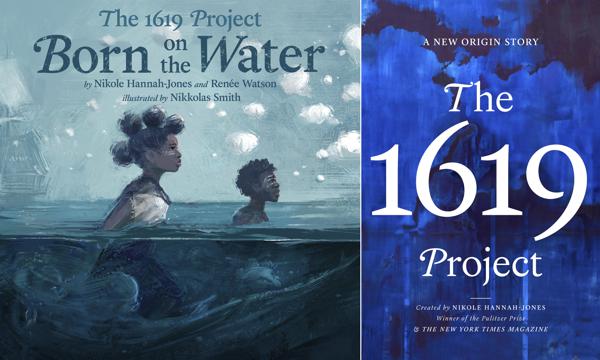

Thais Perkins is the owner of Reverie Books in Austin, Texas, and the parent of a middle school student and high school student. Among the books she is eager to have in her store, and in the schools, is an expanded edition of “The 1619 Project” that comes out this week.
“My store is a social-justice oriented bookstore, and this book fits very well within that mission,” she says. “I am promoting community sponsorships of the book, where people can purchase a copy and have it donated to one of the schools.”
That is assuming, of course, the school will be allowed to accept it.
The “1619 Project,” which began two years ago as a special issue of The New York Times magazine, has been at the heart of an intensifying debate over racism and the country’s origins and how they should be presented in the classroom.
The project has been welcomed as a vital new voice that places slavery at the center of American history and Black people at the heart of a centuries-long quest for the U.S. to meet the promise — intended or otherwise — that “all men are created equal.” Project creator Nikole Hannah-Jones received a Pulitzer Prize for commentary.
At the same time, opposition has come from such historians as the Pulitzer Prize winner Gordon Wood, who denounced the project’s initial assertion that protecting slavery was a primary reason for the American Revolution (the language has since been amended) and from Republican officials around the country. Sen. Tom Cotton, of Arkansas, has proposed a bill that would ban federal funding for teaching the project, and the Trump administration issued a “1776 Commission” report it called a rebuttal against “reckless ‘re-education’ attempts that seek to reframe American history around the idea that the United States is not an exceptional country but an evil one.”
In 2021, Republican objections to the 1619 project and to critical race theory have led to widespread legislative action. According to Jonathan Friedman, director of free expression and education at PEN America, dozens of bills around the country have been proposed or enacted that call for various restrictions on books seen as immoral or unpatriotic. Two bills passed in Texas specifically mention the 1619 project.
“When you look at the current movement about critical race theory, you can see some of its origins in the fight over the 1619 project,” Friedman says.
The Texas laws, Friedman says, are “opaque” about how or whether a given school such as the ones attended by Perkins’ kids could receive a copy of the 1619 book. He cites a passage which reads “a teacher, administrator, or other employee of a state agency, school district, or open-enrollment charter school may not … require an understanding of the 1619 Project.” The provision “effectively bars a teacher from teaching or assigning any materials from the 1619 Project,” he says, but not the school library from stocking it — especially if the book has been donated.
A spokesperson for the Austin Independent School District says in a statement that the “academics team is currently working on this internally, and we are not yet able to speak to the issue.”